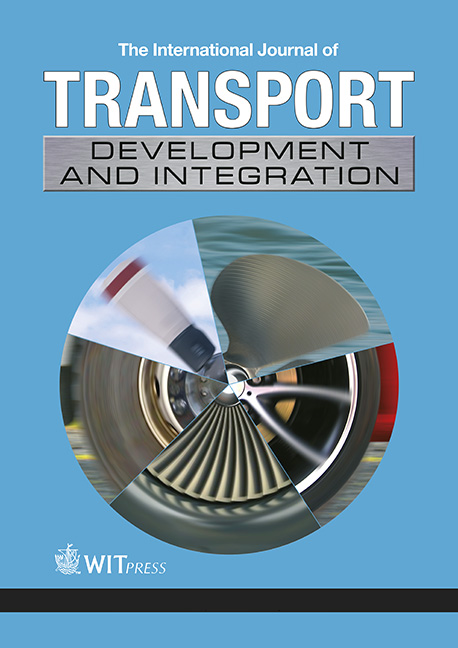Railway traffic disturbance management by means of control strategies applied to operations in the transit system
Price
Free (open access)
Volume
Volume 2 (2018), Issue 4
Pages
10
Page Range
362 - 372
Paper DOI
10.2495/TDI-V2-N4-362-372
Copyright
WIT Press
Author(s)
Francisco A. Ortega, Juan A. Mesa, Miguel A. Pozo & Justo Puerto
Abstract
Railway systems in metropolitan areas support a high density of daily traffic that is exposed to different types of disturbances in the service. An interesting topic in the literature is to obtain action protocols in the presence of contingencies which can affect the system operation, avoiding the propagation of perturbation and minimizing its negative consequences.
Assume that, with a small margin of time (e.g. one day), the decision-maker of the transportation network is knowing that a part of the train fleet will become inoperative temporarily along a specific transit line and none additional vehicle will be able to restore the affected services. The decision to be taken in consequence will require to reschedule the existing services by possibly reducing the number of expeditions (line runs). This will affect travellers who regularly use the transit system to get around.
Consider that the decision-maker aims to lose the least number of passengers as a consequence of having introduced changes into the transit line. A strategy that could be applied in this context is to remove those line runs which are historically less used by travellers without affecting the remaining services. Another alternative strategy might be to reschedule the timetables of the available units, taking into account the pattern of arrivals of users to the boarding stations and the user behavior during waiting times (announced in situ).
The aim of this work consists of assessing the strategy of train rescheduling along the current transportation line when the supply must be reduced in order to reinforce the service of another line, exploited by the same public operator, which has suffered an incidence or emergency.
Keywords
disruption management, railways, timetable rescheduling




